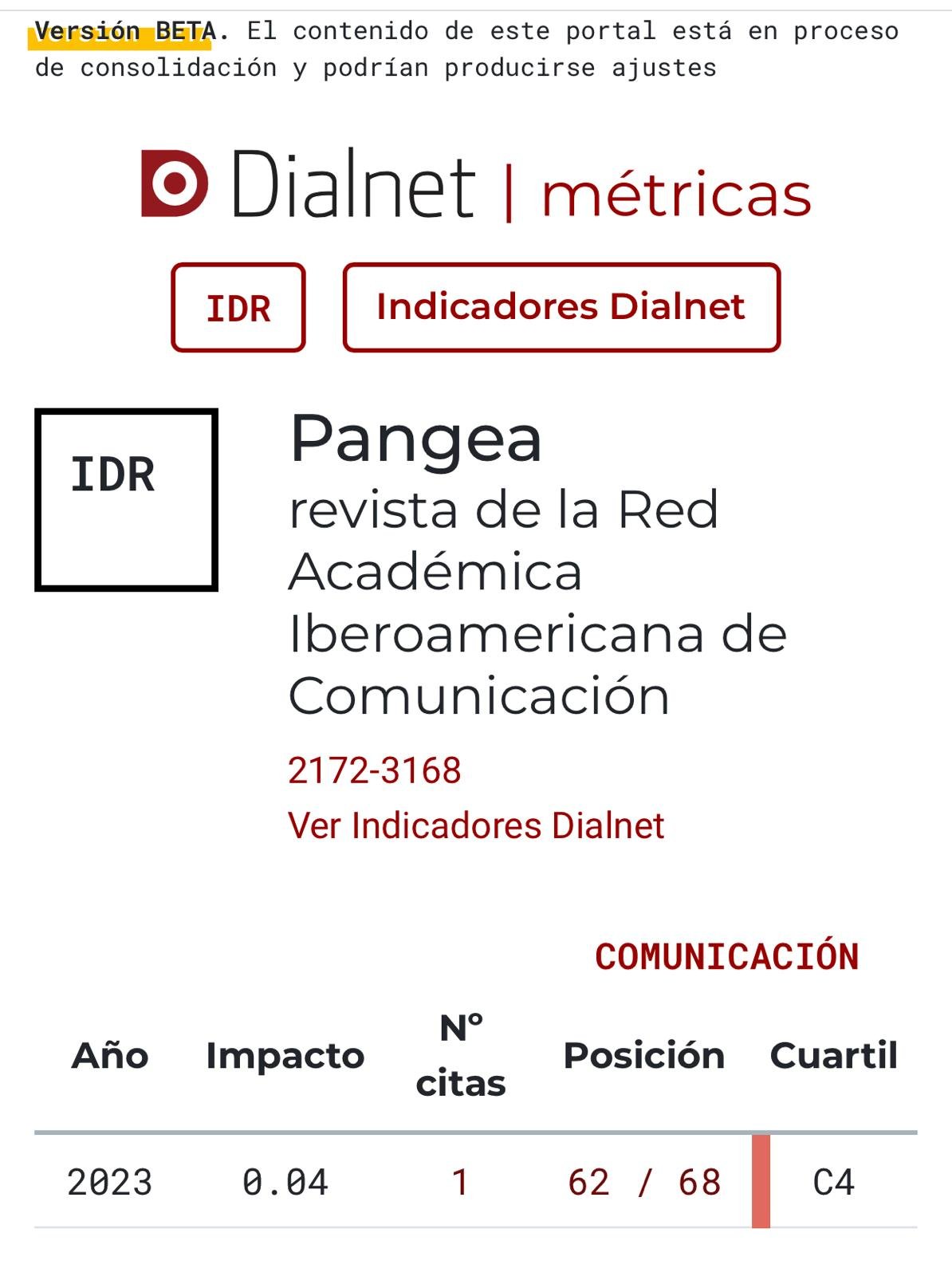The never-ending Mexican democratization: a brief historical analytic framework
DOI:
https://doi.org/10.52203/pangea.v11i1.31Keywords:
Electoral democracy, Electoral authority, Democratic transitionAbstract
On the year 2000, after 80 years of single-party rule by the PRI, a different political organization won the Mexican presidential elections, with many political analysts labelling this phenomenon as a “democratic transition”; thus implying this was the first democratic government ruling the country after many decades of a state-party system of government. In 2018, a new political movement, known as the National Regeneration Party Movement (MORENA) defeated both the PRI and PAN as mainstream, historical parties. This article focuses on analyzing this electoral democratization process in Mexico. Hence, the following questions are posed for discussion: Did Mexico moved towards full democracy in 2000? Did citizen participation have an impact on governmental decisions from 2000 to 2018? Did the National Electoral Institute (INE in Spanish), as the organization responsible for organizing and providing official results, earned nationwide credibility from citizens regarding these processes?
Considering the comprehensive time period of this analysis, the crux of this article is exploring the performance of the National Electoral Institute in these political processes, as it represents the official governmental vision of electoral democracy in Mexico. Also, this essay looks at the political and economic context of how democracy has evolved in Mexico during the second half of the twentieth century.
Firstly, we introduce a conceptual framework on democracy and the electoral authority; then we analyze the INE’s performance in electoral democracy as the key aspect of this work and we close with some thoughts on the future of Mexican democracy.
References
Bobbio, N. et al. (2005). Diccionario de política. México: Siglo XXI.
Camacho, M. (2018). “Denuncia Barbosa que la votación se alteró de origen a favor de MEAH”. La Jornada, 07/26/2018. Consultado el 07/21/2020. https://www.lajornadadeoriente.com.mx/puebla/denuncia-barbosa/
Castillo-García, G. (2012). “Bajo la lupa, Soriana, Monex y dos empresas”. La Jornada, (07/12/2012). Consultado el 07/20/2020. https://www.jornada.com.mx/2012/07/12/politica/007n2pol
Centro de Estudios de la Democracia y Elecciones (CEDE, s/f). http://cede.izt.uam.mx:8089/cedeSys/faces/cede/records.xhtml?tableId=25
Cisneros, J. (2015). Un mundo falso. Notas sobre sus constructores actuales. Tenerife, España: Sociedad Latina de Comunicación Social.
Chen Y. (2020) “Modern Market Economy”. En: New Economic Engine: Effective Government and Efficient Market. China Academic Library. Springer: Singapore. https://doi.org/10.1007/978-981-15-2922-1_6
Cosío-Villegas, D. (1985). Breve historia de México. México: El Colegio de México.
Doyle, W. (2018). The Oxford History of the French Revolution. Oxford: Oxford University Press.
El Economista (2018). “Puebla, el estado con más denuncias ante la FEPADE” /07/02/2018. Consultado el 07/21/2020. https://www.eleconomista.com.mx/politica/Puebla-el-estado-con-mas-denuncias-ante-la-FEPADE-20180702-0023.html
El Economista (2020). “INE, sin cuatro consejeros y ante una pandemia” 04/20/2020. Consultado el 07/23/2020. https://www.eleconomista.com.mx/politica/INE-sin-cuatro-consejeros-y-ante-una-pandemia-20200420-0156.html
Elecciones en México 1979 -2015. http://www.historiaelectoral.com/mexico.html
El Financiero (2018). “Elecciones 2018. Fepade atiende 74 denuncias electorales”. 01/07/2018. México https://www.elfinanciero.com.mx/elecciones-2018/fepade-atiende-74-denuncias-electorales
Expansión (2020). “Empresarios y gobierno invertirán 297,000 mdp en 39 proyectos de infraestructura”. 05.10.2020 México. https://expansion.mx/empresas/2020/10/05/amlo-ip-presentan-plan-de-reactivacion-39-proyectos-297-mdp
Gramsci, A. (1981). Cuadernos de la cárcel. México: Ediciones Era.
Habermas, J. (2014). The Future of Human Nature. Hoboken: John Wiley & Sons
Habermas, J. (1993). El discurso filosófico de la modernidad. Madrid: Taurus
Habermas, J. (1987). Teoría de la acción comunicativa [1981]. Madrid: Taurus.
Haddad, P. (2001). Los valores de la democracia: historia del sufragio en México. México: UJAT
Handbook on Electoral Management Design (2014). http://www.eods.eu/library/IDEA.Electoral-Management-Design.pdf
Instituto Estatal Electoral-Puebla, (IEEP, 2018). Proceso Electoral Estatal Ordinario 2017-2018. Concentrado de Cómputo Final de la Elección de Gubernatura.
https://www.ieepuebla.org.mx/2018/resultados/Finales_Gubernatura_anexo.pdf
IFE (2007).
https://portalanterior.ine.mx/documentos/Estadisticas2006/presidentet/nac.html
INE (2020, 1).
INE (2018) https://computos2018.ine.mx/#/presidencia/nacional/1/1/1/1
Instituto Electoral del Estado de Puebla, (IEEP, 2020). Elecciones Estatales de Puebla, Gubernatura 2018. Consultado el 07/18/2020. https://preppuebla2018.mx/gubernatura
INE (2018) https://computos2018.ine.mx/#/presidencia/nacional/1/1/1/1
Kates, S. (2011) Free Market Economics: An Introduction for the General Reader. Cheltenham: Edward Elgar Publishing.
Lewis, P. (2006) Authoritarian Regimes in Latin America: Dictators, Despots, and Tyrants. Lanham: Rowman & Littlefield Publishers.
Méndez de Hoyos, (2006). Transición a la Democracia en México: competencia Partidista y Reformas electorales 1977- 2003. México: Fontamara.
Muñoz Petraca, V. (2006) Partido Revolucionario Institucional 1946-2006. México: Editorial Siglo XXI.
Murillo, F. (1990). Estudios de sociología política. Madrid: Tecnos.
Nexos, revista (2018) 10/12/2018. https://eljuegodelacorte.nexos.com.mx/?p=9348
Portelli, H. (1977). Gramsci y el bloque histórico. México: Siglo XXI.
Recursos electorales, (2020).
http://recursoselectorales.org/mx/diputados.php?election=2009
Animal Político (2020) “Diputados aprueban a los 4 nuevos consejeros del INE; estos son sus perfiles”. Consultado el 07/30/2020. https://www.animalpolitico.com/2020/07/nuevos-consejeros-ine-votacion-morena-diputados/
Reyna, J. L. (1993) “Las elecciones en el México Institucionalizado, 1946 – 1976”. En: González Casanova (1993) Las Elecciones en México: evolución y perspectivas. México: Siglo XXI.
Servín, E. (2002) “Las elecciones presidenciales de 1952: Un intento de cambio democrático”. En: Estudios de Historia Moderna y Contemporánea de México. Martha Beatriz Loyo (editora). México: Universidad Nacional Autónoma de México, Instituto de Investigaciones Históricas, vol. 23, 2002, pp. 179-205.
The Economist, Intelligence Unit (2019). En: Democracy Index 2018: Me too? Political participation, protest and democracy. https://pages.eiu.com/rs/753-RIQ438/images/Democracy_Index_2018.pdf?mkt_tok=eyJpIjoiTUdFMll6SmhObVprT1RGaCIsInQiOiIxT3RLUXNETUpmR3YxZjlcL2hUK1JiMU9oK1wvMm83cTRFUjRzajdNZ08rd3cyNUpPVTV3M05RYUQxWjVNMUlQNHU3aG53STh1Zk16Y0RmSFVoQ21HMkw5dE14MVFkZE5UVVNnTXczdk9QcSt3alA2Vk9uTzFsOGhETDBNM1gxTlwvTCJ9
Weber, M. (1997). Sociología de la religión. Madrid: Istmo.
Woldenberg, J. (2012). Historia Mínima de la Transición Democrática de México. México: El Colegio de México.
Downloads
Published
Issue
Section
License
Copyright (c) 2020 José Antonio Cisneros-Tirado, José Cisneros Espinosa, Alejandro Silva Arias

This work is licensed under a Creative Commons Attribution-NonCommercial-NoDerivatives 4.0 International License.
https://creativecommons.org/licenses/by-nc-nd/4.0/deed.es





